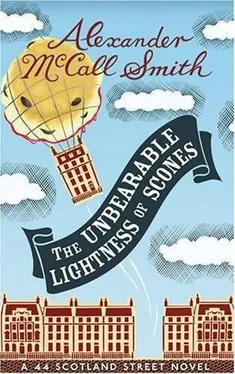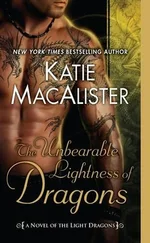Alexander Smith - Unbearable Lightness of Scones
Здесь есть возможность читать онлайн «Alexander Smith - Unbearable Lightness of Scones» весь текст электронной книги совершенно бесплатно (целиком полную версию без сокращений). В некоторых случаях можно слушать аудио, скачать через торрент в формате fb2 и присутствует краткое содержание. Жанр: Триллер, на английском языке. Описание произведения, (предисловие) а так же отзывы посетителей доступны на портале библиотеки ЛибКат.
- Название:Unbearable Lightness of Scones
- Автор:
- Жанр:
- Год:неизвестен
- ISBN:нет данных
- Рейтинг книги:4 / 5. Голосов: 1
-
Избранное:Добавить в избранное
- Отзывы:
-
Ваша оценка:
- 80
- 1
- 2
- 3
- 4
- 5
Unbearable Lightness of Scones: краткое содержание, описание и аннотация
Предлагаем к чтению аннотацию, описание, краткое содержание или предисловие (зависит от того, что написал сам автор книги «Unbearable Lightness of Scones»). Если вы не нашли необходимую информацию о книге — напишите в комментариях, мы постараемся отыскать её.
Unbearable Lightness of Scones — читать онлайн бесплатно полную книгу (весь текст) целиком
Ниже представлен текст книги, разбитый по страницам. Система сохранения места последней прочитанной страницы, позволяет с удобством читать онлайн бесплатно книгу «Unbearable Lightness of Scones», без необходимости каждый раз заново искать на чём Вы остановились. Поставьте закладку, и сможете в любой момент перейти на страницу, на которой закончили чтение.
Интервал:
Закладка:
The realisation that time hung heavily on her hands was an unsettling one for Domenica. She had always been an active person, and the only time that she could recall having too little to do was during the years of her marriage when, as Mrs. Varghese, she had lived in Kerala in a household dominated by her husband’s difficult mother. She had wanted to busy herself there with projects, but had been prevented from doing so by the strong expectation that a woman in her position did no work. And so she had endured hour after hour of enforced idleness, putting up with the constant chatter of her garrulous and petulant mother-in-law, until in a terrible flash – an accident in her husband’s small electricity factory – she had been propelled into widowhood.
After that, Domenica had not known boredom. The province of an anthropologist is mankind, and mankind offered itself in all its manifold peculiarities. There had been more field-work, including an interesting and productive period amongst the Nabuasa of Timor, which had led to the publication of the book on which her career had been based. But who now had read, or even had heard of, Ritual Exchanges as Indices of Power in a Nabuasa Sub-Clan ? Nobody, thought Domenica. I might as well have written those words on water.
This melancholy contemplation of the transience of academic distinction could have plunged Domenica into something akin to despair. But it was not in her nature to mope, and her realisation that she had nothing to do simply had the effect of galvanising her into action. My friends, she thought, are those whose advice I should take, even if they are not with me at this precise moment. And what would they say? She thought of James Holloway, who was most certainly not one to sit and do nothing. James would say to her: “Get yourself a motorbike.” Indeed, he had once tried to convert her to biking and had taken her as a passenger on an outing to Falkland, where they had watched real tennis being played in a court in the gardens of the palace. Such a strange game, thought Domenica, with its curious cries and requirement that one should hit the ball off the roof. James had appeared to know the rules and had tried to explain them, but Domenica had a mental block about the rules of sports, and had not taken them in. It was every bit as complicated, she felt, as American football, which did not seem like a game at all, but an orchestrated fight. But that, of course, is what so many men want to do, or at least see done. They want to see conflict and competition, which was what sport was all about.
No, James could keep his motorbikes as far as Domenica was concerned. And what would Dilly Emslie advise her? Dilly, of course, had no truck with motorbikes, but would probably advise her to take on another piece of research. That was good advice, but Domenica did not relish the thought of going off into the field again. The Malacca Straits had been enjoyable, in their way, but somehow she did not see herself summoning up the energy to set up a long trip of that sort. What would be required, then, would be something much more local – anthropology did not have to be performed among distant others; it could be pursued in the anthropologist’s back yard. Her friend, Tony Cohen, had gone to Shetland, which was not all that far away, and had written Whalsay: Symbol, Segment and Boundary in a Shetland Island Community . There were plenty of things worth studying in mainland Scotland or in its surrounding islands; enough to keep an anthropologist engaged for years. Something local, then, was the solution.
Cheered by the thought that she might find a project that could be embarked upon from home, Domenica rose to her feet and crossed the room to the cupboard in which she kept her notebooks. One of these she called her Projects Book and it contained the jottings of various ideas that she had had over the years. Some of these jottings dealt with Scottish themes, and it was possible that she might find something to follow up in that.
But that was not what she found. Rather, on opening the cupboard and reaching within for the pile of notebooks, her hand alighted on something smooth and cold to the touch; cold enough to chill the heart, with guilt, with sudden regret. A blue Spode teacup. The original one.
Domenica had sought to catch a thief. In so doing, she had become one.
61. Portrait of a White Lie
Of course, she thought of Angus, and turned to him. That was the right thing to do; not only did he know the full background to the whole issue of the blue Spode teacup, but he had been actively involved in it. It was Angus who had removed the cup from Antonia’s flat, and that made him party to this unfortunate state of affairs; not that she would blame him for this in any way – he had merely acted on her instructions. She was not sure if she needed to reproach herself either – she had acted in good faith – but this absence of moral fault did not mean that she felt comfortable about the fact that she now had in her possession a teacup that did not belong to her. If one has in one’s possession an item which one knows belongs to another, then there is a clear obligation to return it to the rightful owner; holding on to it is theft.
As Domenica wrestled with the moral implications of her unfortunate discovery, Angus Lordie settled down to an afternoon of painting. He had been looking forward to a spell of peace, he thought, as the previous few days had been unsettling in the extreme. There had been the business over the puppies – although he was trying to put that out of his mind; of course the puppies would be all right, why would they not be? Then there had been Big Lou’s disclosure that she was sheltering the Pretender in her flat in Canonmills. That had been very disturbing, as Angus felt strongly protective of Big Lou. The Pretender, whoever he was, would almost certainly be a charlatan, determined to take maximum advantage of the kindness and hospitality of others. And Big Lou was kind to a fault; everybody knew that.
But what had unsettled Angus more than anything else was that curious meeting with Lard O’Connor in Glass and Thompson and the entrusting by Lard into his hands of the picture he had brought to show Matthew. The moment he had said goodbye to Lard, with a promise to telephone him once Matthew arrived home from his honeymoon, Angus had left Glass and Thompson and made his way back to his flat in Drummond Place, bearing the large, wrapped parcel in which the painting was concealed. If people knew what I was carrying, he thought, how surprised they would be. A portrait by Sir Henry Raeburn no less; but not just any Raeburn…
He met nobody in Abercromby Place or Nelson Street, but when he turned into Drummond Place itself, and was only a few hundred yards away from home, he bumped into Magnus Linklater.
Magnus was clearly in the mood for a chat. “Well, Angus,” said Magnus. “That’s an interesting-looking parcel you’ve got there. One of your own?”
Angus thought quickly. He would have loved to reveal to somebody else – anybody else – what he thought he had, but Magnus was a newspaper editor, and would it be a good idea to reveal to the world just yet that a Raeburn portrait of Burns had at last turned up? No, thought Angus, it would be premature. He could not be absolutely sure that this was Burns by Raeburn. He could not be absolutely sure even if this was anybody by Raeburn. There were plenty of Raeburn imitators, inferior artists who painted in the style of the master. Indeed, there were Russian factories, Angus believed, that would turn out a Raeburn today for a few hundred pounds. Could this, he wondered, be a Russian Raeburn?
He had to say something to Magnus, who was looking at him politely while at the same time glancing sideways at the painting. Angus noticed that the top of the wrapping had slipped and had revealed the upper edge of the frame.
Читать дальшеИнтервал:
Закладка:
Похожие книги на «Unbearable Lightness of Scones»
Представляем Вашему вниманию похожие книги на «Unbearable Lightness of Scones» списком для выбора. Мы отобрали схожую по названию и смыслу литературу в надежде предоставить читателям больше вариантов отыскать новые, интересные, ещё непрочитанные произведения.
Обсуждение, отзывы о книге «Unbearable Lightness of Scones» и просто собственные мнения читателей. Оставьте ваши комментарии, напишите, что Вы думаете о произведении, его смысле или главных героях. Укажите что конкретно понравилось, а что нет, и почему Вы так считаете.












